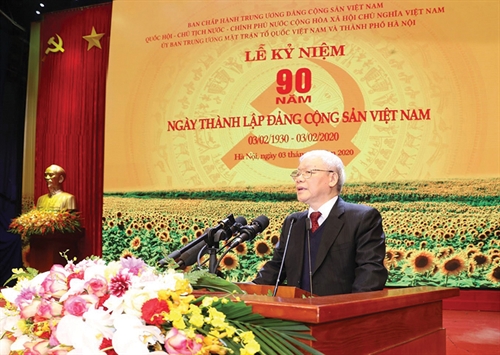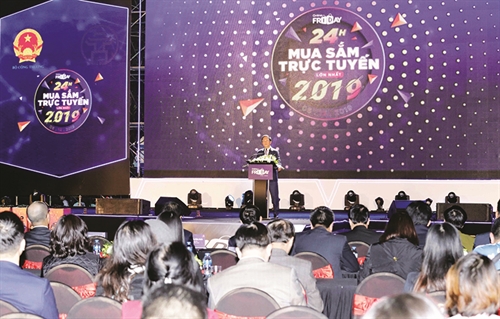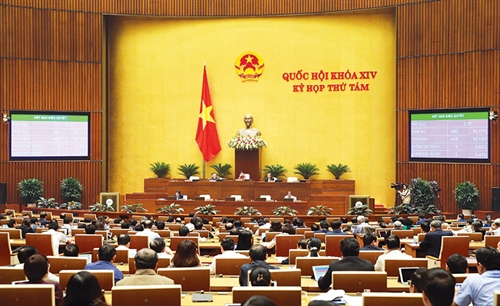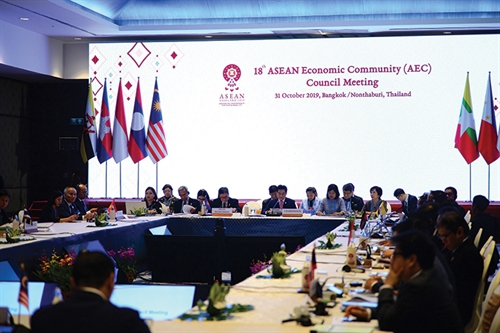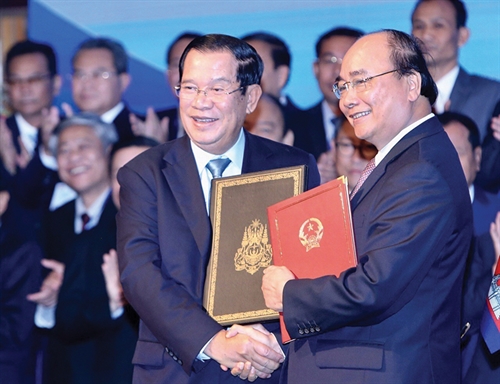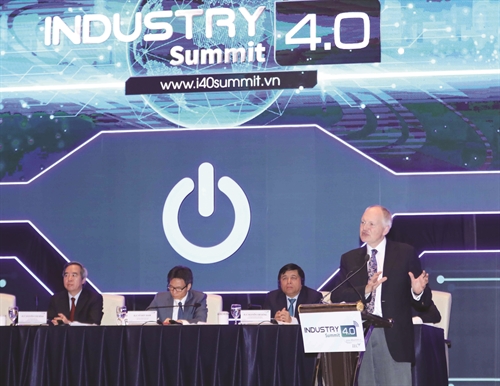Luu Huong Ly and Le Ngoc Giang
Department of Civil-Economic Laws - Ministry of Justice
What are cryptoassets?
For the time being, there has been no unified definition of “cryptoasset” or “digital asset” or “virtual asset” in the world. According to the Financial Action Task Force (FATF), a global money laundering and terrorist financing watchdog, “a virtual asset is a digital representation of value that can be digitally traded, or transferred, and can be used for payment or investment purposes.”[1] Canada’s model legislation regarding digital assets, the Uniform Access to Digital Assets by Fiduciaries Act, defines “a digital asset” as “a record that is created, recorded, transmitted or stored in digital or other intangible form by electronic, magnetic or optical means or by any other similar means.”[2]
Cryptocurrency (or virtual currency) is a form of cryptoassets (or virtual assets). There is also no unified definition of this term in the world. According to the Uniform Regulation of Virtual Currency Businesses Act of the US, virtual currency is a digital representation of value that is used as a medium of exchange, unit of account or store of value and does not have legal tender status, though it may have an equivalent value in real currency. However, virtual currency does not include (i) transactions where a merchant grants value that cannot be exchanged for legal tender, bank credit or virtual currency and (ii) digital representations of value used solely within game platforms.[3]
In practice, although the term “virtual asset” is very popular, there also exist other terms such as “digital asset” or “cryptoasset”, which are interchangeable. In this article, the authors will use the term “cryptoasset”.
Cryptoassets are created by applying distributed ledger technology (DLT), the most popular of which is blockchain combined with cryptography. In practice, individuals and organizations often create and exchange cryptoassets to meet their expectation. Most cryptoassets are durable, divisible and transferable. The value of these assets generally come from their supply scarcity. Therefore, cryptoassets, by their very nature, are also properties.
Cryptoassets are classified into security tokens, payment tokens and utility tokens. Security token is a type of cryptoassets which have features of securities under security law of a nation, a proof of legal rights and interests of an owner in the asset or capital of the offerer. Payment tokens or cryptocurrency is a type of cryptoassets which are not securities under security law of a nation but are trusted and used as a medium of payment within a community without the need for a centralized institution. Utility tokens or access tokens is a type of cryptoassets which are neither security tokens nor payment tokens and used to access and use a specific service. It should be noted that a cryptoasset may be a hybrid of those above-mentioned tokens.
Blockchain technology in general and cryptoassets in particular have many technological advantages and may bring about groundbreaking benefits as a tool for fundraising and creating an ecosystem for businesses, especially startups. On the other hand, there are also risks that they may be abused for illegal purposes such as money laudering and terrorism financing without a proper legal framework and effective enforcement.
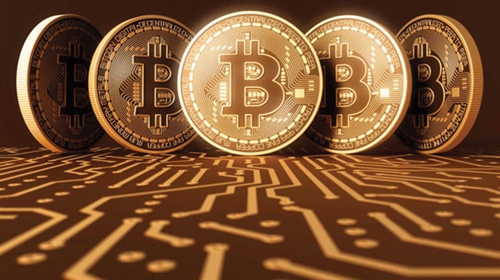 |
| Bitcoin, the most popular cryptocurrency in the world and Vietnam__Photo: Internet |
Vietnam’s current regulations on cryptoassets
Recently, there has been no clear definition of and regulations on cryptoassets in Vietnam. Terms such as “virtual assets”, “virtual money”, “cryptoassets”, and “cryptomoney” have not been defined anywhere in the current legal framework of Vietnam. A study of international experience has shown that in principle, we can apply the current relevant regulations to cryptoassets on a case-by-case basis depending on technical characteristics and uses of a particular cryptoasset. However, the lack of a clear and unified legal framework on cryptoassets has created confusion and challenges in applying and enforcing law in practice as well as risks in transactions and State’s regulation; opening the door for fraud activities meanwhile discouraging honest and faithful businesses, especially startups, since cryptoasset-related activities are often, yet wrongly, regarded as “illegal”.
The Ministry of Justice has done a comprehensive review and study on the cryptoasset-related provisions of the current legal framework of Vietnam and such review has shown several facts[4]:
(i) Regarding its legal nature, a cryptoasset should be treated as an intangible property, being a thing, transferable instrument or property right, depending on its specific features and economic functions, within the concept of “property” under the 2015 Civil Code[5]. However, the absence of a legal document defining cryptoassets as properties has created various difficulties in legal enforcement and application in practice. Cryproassets are neither governed by the 2005 Commercia Law nor defined as either “goods” or “service” in any documents in the country’s current commercial law system. Under Vietnam’s current securities law, there is still controversy over whether cryptoassets are securities even if they have all characteristics of securities. As per the current law on banking and foreign exchange, a cryptoasset in general and cryptocurrency in particular is not legal tender, payment instrument or foreign exchange;
(ii) Regarding administration of initial coin offerings (ICO), at present, there is no legal document to regulate ICO activities except the provision that prohibits “illegal fundraising from other individuals and organizations in the name of electronic commercial business activities”[6];
(iii) Regarding the management of cryptoasset investment, purchase and sale, since there is no legal document prohibiting cryptoasset-related business and investment, these activities are not considered violation of law on investment and business. Moreover, cryptoassets are not included in the list of prohibited goods or conditioned buying and selling goods; and,
(iv) Regarding tax administration, it remains unclear whether cryptoassets are “goods” or “service” under the current tax law. The Law on Value Added Tax (VAT) lists goods and services that are subject to VAT and goods and services that are not but fails to specify the nature of VAT. As for income tax, even though there is still much controversy in reality, it can be said that in principle, incomes derived from cryptoasset-related business activities, including also cryptoasset “mining”, are subject to income tax.
In practice, in Vietnam, even though there has been no clear legal framework for cryptoassets, they have been transacted openly and many individuals have got involved in cryptoasset-related investment and business activities, mainly for speculation purpose. Investors in Vietnam can buy and sell popular cryptoassets through some exchanges and social network groups or instant messages, etc. Moreover, there have been individuals and organizations who establish computer systems to “mine” cryptocurrency in Vietnam. It is not to mention the occurence of frauds related to infamous virtual currencies such as AOC, iFan, Sky Mining, VNCOIN, etc.
Shaping a legal framework for cryptoassets in Vietnam
On October 29, 2018, the Ministry of Justice sent a report[7] to the Prime Minister on review and assessment of the current legal framework and practice on virtual assets and virtual money in Vietnam and some other countries, in which it introduced some observations and recommendations on shaping a legal framework for virtual assets and virtual money in Vietnam.
Realities show that a total prohibition of cryptoassets by banning or using technical solutions to ban cryptoassets is not feasible due to specific technological characteristics of these kinds of asset, especially when such prohibition is only implemented by individual nations. Meanwhile, if there is no supervision and regulation on cryptoassets, it will be impossible to prevent and minimize risks related to these kinds of asset. Therefore, creating a proper legal framework to regulate cryptoasset-related activities in Vietnam is a must in order to encourage technology applications, promote innovation and startups as well as protect consumers and national defence and security.
Recently, most countries focus mainly on regulating cryptoasset-related transactions rather than cryptoassets generally. Furthermore, they tend to pay attention on cryptoassets while ignoring other virtual assets such as virtual commodity in online games or credit points in supermarkets or loyalty programs. The reason is that the latter has very limited uses, mainly within a program or small community, and has no substantial socio-economic impacts and no remarkable risks of being abused for illegal activities such as fraud, tax evasion, money laudering and terrorism financing, etc.Therefore, the Government of Vietnam should only focus on regulating cryptoassets (including cryptomoney) but not virtual assets and virtual money in genenal. For the latter, the Government could apply the current legal framework, e.g., the Civil Code, to regulate them.
The legal framework for regulating cryptoassets in Vietnam should be shaped in a prudent, incremental, experimental manner and follow international trends as well as international financial and monetary standards and best practices. In particular, the Ministry of Justice recommended some factors that should be taken into consideration when devising regulations on cryptoassets.
Regarding its legal nature, cryptoassets must be treated as “property” (a type of special “non-traditional” property) in accordance with the Civil Code. Yet, at present and in the near future, cryptocurrency should not be allowed as a legal payment instrument in the territory of Vietnam. The classification of cryptoassets for state administration purposes, including tax collection purpose, is very important. Based on the economic functions and features of cryptoassets, cryptoassets should be classified into secutity tokens and non-security tokens.
For security tokens, if they have economic functions and features of securities under the securities law, they must be treated as securities. Thus, all securities token-related activities, such as ICOs, must comply with the current law on securities. The securities watchdog, the State Securities Commision under the Ministry of Finance, will take charge of supervising and enforcing law on securities regarding this type of cryptoassets. As per non-security tokens, if tokens do not have economic functions and features of securities under the current law on securities, they will then be regarded as payment tokens and utility tokens.
The current banking law of Vietnam does not treat cryptoassets in general and cryptocurrency in particular as legal tender or legal payment instrument within the territory of Vietnam and it should not do so in the near future. However, a cryptoasset or cryptocurrency should be allowed to be used within a community or ecosystem, and such transactions should be treated as barter trade. In any event, the State Bank of Vietnam, as the national monetary regulator, must closely supervise and investigate to prevent or stop cryptoassets from being abused for illegal purposes such as money laudering and terrorism financing. The Central Bank should also pay special attention to cryptoasset intermediary institutions such as exchanges for this purpose.
For cryptoassets that are utility tokens or access tokens, generally, it is not necessary to regulate business activities related to these types of cryptoassets. Yet, to ensure tramsparency, they should be defined as “special” goods or services to solve legal issues that may arise as well as to supervise relevant intermediary institutions.
Regarding ICO regulations, in principle, a legal framework to regulate ICO activities is to ensure that all information relating to ICO projects such as technology base, goods and services provided, etc., are provided in a full, precise and transparent manner and to create a feasible and effective mechanism to enforce the offerers’ commitments. Besides, ICOs are also subject to relevant sectoral regulations depending on the functions and features of the cryptoassets that are offered. The offerers should be responsible for assessment of whether the cryptoasset offered is a security or non-security token in order to comply with relevant sectoral regulations and competent authorities should be entitled to review, give legal opinions and warn offerers if their cryptoassets are security tokens. Furthermore, the offerers should also be required to apply a Know-Your-Customer (KYC) process for the purpose of anti-money laundering and terrorism financing. Unregistered ICOs must be considered illegal and violators must be subject to either administration fines or criminal penalties.
Since cryptoassets are properties in nature and in order to promote innovation, we should not restrict cryptoasset owners’ right to invest and do business as long as they do not use cryptoassets for illegal purposes.
In practice, cryptoasset owners can directly exchange their cryptoassets without involment of any intermediary institution. However, these transactions bear the risks of frauds, or being abused for illegal purposes or sparking disputes. Therefore, it is necessary to supervise and regulate intermediary institutions such as e-wallet and exchange service providers by specifying conditions for getting permits and such conditions must be complied with all the time to guarantee effective state administration, tax collection and dispute settlement.
Particularly for the purpose of tax adminstration, generally, cryptoassets are subject to both VAT and income tax, either corporate income tax (CIT) or personal income tax (PIT).
For VAT, if a cryptoasset is a security token, its related transactions should not be subject to VAT. Non-security tokens should be considered special goods because as compared to more traditional goods, owners of these tokens only use them to exchange for either goods or services in the ecosystem that are committed by offerrers. Thus, the Government should give tax incentives to non-security token transactions.
For income tax, incomes that are derived from cryptoasset-related activities should be subject to either CIT or PIT depending on whether the taxpayer is a corporation or an individual.
Given that cryptoasset is a new issue and technonoly may change fast, the Government should issue a pilot legal framework in the form of a decree on investment and business in cryptoassets in accordance with Article 19.3 of the Law on Promulgation of Legal Documents after getting the nod from the Standing Commission of the National Assembly.-

